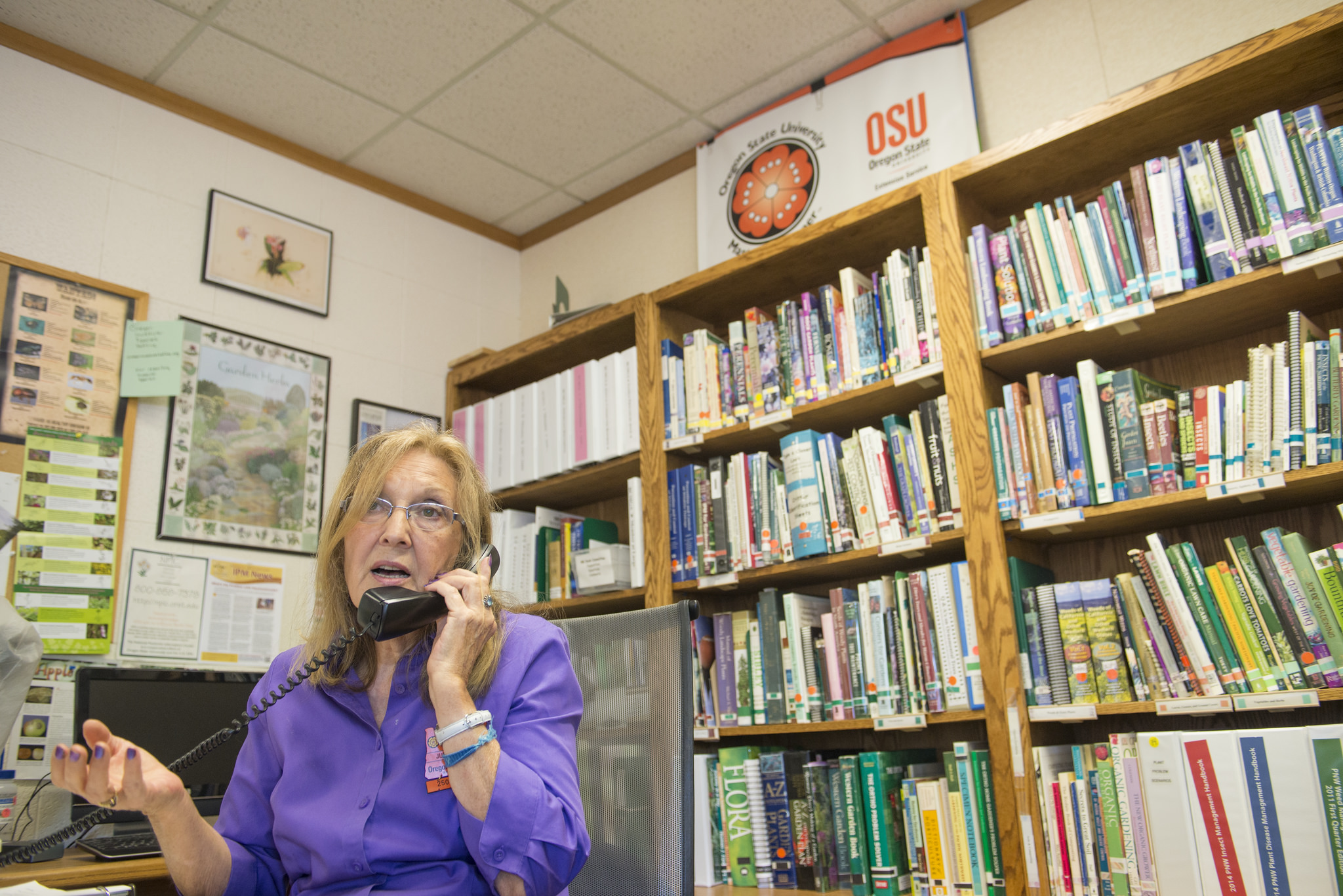When you’ve got a gardening question, try tapping out a local phone number for a customized answer instead of delving into the impersonal internet.
The one-to-one contact could mean the difference between success and failure.
At the other end of the phone line in 28 counties sit Oregon State University Extension Service Master Gardeners poised to solve your gardening problems — or help keep them from happening in the first place.
More than 3,000 volunteers have graduated from 66 hours of intensive training in topics from insect identification to vegetable gardening. They pick up phones prepared to listen, investigate and furnish information that’s been scientifically vetted, according to Gail Langellotto, statewide master gardener coordinator.
“Our tagline is ‘reliable, reachable, relevant,’” she said. “We get to know your gardening situation and provide customized advice based on your location, your preferences and your goals.”
Going to the internet to identify a plant or insect can be problematic, Langellotto noted. A gardener may notice an insect that’s red and black, search those parameters and come up with a different insect.
“You may not be able to distinguish differences in the shape of the wing or type of antenna,” she said. “If the insect is misidentified, it could lead to applying a pesticide on something that’s not a pest. Or you may kill something beneficial for the garden. You need the correct ID to solve your problem.”
Wading through plant descriptions online can be onerous, too, said Brooke Edmunds, an Extension horticulturist. Websites sometimes contradict each other, and some offer only the most basic or vague information. Growing a plant correctly depends on knowing its needs.
Does it do best in sun or shade, moist soil or dry? How much fertilizer does it need? How and when should you prune it? Will it grow too big for the planned space or send out roots to disturb the sidewalk? What about cold and heat hardiness? There are so many questions.
By calling Extension master gardeners and horticulturists like Edmunds, you’ll get personalized information based on your particular problems and needs, all answered with a one-on-one phone call instead of time-consuming visits to multiple websites.
“In my mind, that’s a really important place master gardeners come into play,” she said. “They stop and really figure out the situation.”
Edmunds pointed out that the research-based information is appropriate for all gardeners’ viewpoints, whether they want to follow organic tenants, prefer to use synthetic products or fall somewhere in between.
“All options are presented,” she said. “We’re showing everything that works. People can choose what fits best into how they like to garden.”
That those options are based on science means you’ll get data specific to Oregon, Edmunds stressed. The problems that arise and plants that grow here can differ widely from other states, even from one part of the state to another. Local master gardeners are familiar with regional gardening, answer thousands of questions each year and quickly get timely, accurate answers to your questions.
“A lot of times people call wanting verification of something they’ve looked up on the Internet,” Langellotto said. “We use that as a jumping off point for a conversation. We make sure a person knows the questions to ask to get the answers they need.”
Master gardeners also work directly with the public at farmer’s markets, plant sales, garden shows, county fairs, demonstration gardens, schools and correctional facilities. Most counties offer a seasonal slate of classes, too.
“There’s nothing like a hands-on class,” Edmunds said. “Say you’re new to composting. You can read a lot about it and find a lot of advice online, but it’s different than going to a class and seeing what ‘wet but not dripping’ compost looks like and feels like and take that information away.”
Check with your county Extension office or call your local Master Gardener hotline for information on classes in your area.

